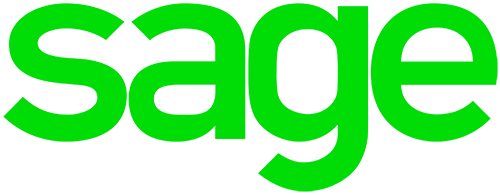The best retail accounting software offers essential features for retailers, such as the ability to track inventory and sales tax, produce basic financial reports, and integrate with various point-of-sale (POS) systems. Ideally, it should be reasonably priced and easy to set up and use, especially since many retailers don’t have an accounting background.
That said, here are our five best accounting software for small retail business operations:
- QuickBooks Online: Best overall accounting software for small retail businesses
- Xero: Best low-cost software for retailers with many users
- QuickBooks Desktop Enterprise Retail Edition: Best for retailers with complex inventory and multiple locations
- Sage 50 Accounting: Best for retailers with an in-house professional bookkeeper
- Wave Starter: Best free software for very small retailers
Best Retail Accounting Software Quick Comparison
QuickBooks Online: Best Overall Accounting Software for Small Retail Businesses

Pros
- Has strong inventory management features
- Automatically calculates sales tax rates
- Offers a wide selection of customizable financial reports
- Provides class and location tracking
- Has a powerful mobile app
Cons
- Is more expensive than comparable products
- Doesn’t support the average cost method of inventory accounting
- Can’t create customized pricing rules
- Simple Start: $35 per month for one user
- Essentials: $65 per month for up to three users
- Plus: $99 per month for up to five users (required for inventory)
- Advanced: $235 per month for up to 25 users
New subscribers can choose between 50% off for the first three months or a 30-day free trial.
We selected QuickBooks Online as our overall best retail accounting software because of its excellent inventory management and sales tax tracking features. Its inventory features are enough for most retail businesses since it can track inventory costs, quantities, and cost of goods sold (COGS). Retailers can track their stock in real time, and they will be alerted when inventory levels run low.
Additionally, QuickBooks Online automatically calculates sales tax rates based on a customer’s address. We find this feature extremely useful for retailers that operate in multiple regions where sales tax rates vary. Also, you can connect QuickBooks Online to POS software such as Square to enable POS features, like the ability to sync sales data and accept payments. Furthermore, with QuickBooks Online’s class and location tracking, you can track specific activities and product groups in your retail business.
Overall, we recommend the Plus plan as the starting point if you want most of QuickBooks Online’s features. Its only limitation is the price and the number of seats available. If you want a more affordable alternative with unlimited user access, you should consider Xero (discussed in the next section).
QuickBooks Online earned a perfect mark for the general accounting features category, and it would also have aced retail-specific features if it could create customized price rules for customers—something you can do with other software like QuickBooks Enterprise.
We deducted a full point for pricing because inventory features are only available in the Plus and Advanced plans. It also took a slight hit for ease of use, as users might need some time to get comfortable with the interface and advanced features. Lastly, it would have scored better in customer support if direct phone access wasn’t limited to the Advanced plan, allowing all users to reach out for help more easily.
Xero: Best Low-cost Software for Retailers With Many Users

Pros
- Comes with unlimited users in all plans
- Has features comparable to QuickBooks Online but is more affordable
- Offers customizable reports
- Has robust integrations with third-party apps through the Xero App Store
Cons
- Allows only one organization per subscription; no option to add more
- Lacks live customer support
- Restricts the number of bills and invoices in entry-level plan
All plans include inventory accounting and unlimited users.
- Early: $20 per month for up to 20 invoices and five bills
- Growing: $47 per month for unlimited invoices and bills
- Established: $80 per month for unlimited invoices and bills plus project accounting
You can sign up for a 30-day free trial to help you decide which plan best suits your needs.
Unlike QuickBooks Online, Xero offers inventory management in all of its plans, and you can add as many users as needed without paying any additional fees. For as low as $15 per month, you’ll be able to track your inventory, and if you wish to access additional features like project tracking, you’ll only pay $78 monthly.
With Xero, you can create inventory items, track stock levels, and calculate COGS automatically, which are sufficient for most small businesses. However, it doesn’t have barcode scanning and raw material inventory, so consider QuickBooks Enterprise if you have complex inventory needs. Additionally, unlike QuickBooks Online, it doesn’t automatically calculate sales tax rates, so you have to manually set them up for each transaction.
Another limitation we found is that Xero only supports a single company under a single subscription. This means you may have to look elsewhere if your retail business operates multiple stores or locations. For this, we recommend QuickBooks Enterprise, our overall best multicompany accounting software.
Just like QuickBooks Online, Xero aced our evaluation of general accounting features and did well in terms of pricing. However, it fell short in some areas because of its limitations. For instance, our rating of its ease of use is only above average because of the software’s support network—most US accountants and CPAs are more familiar with QuickBooks than Xero.
Additionally, it didn’t tick all the boxes for retail-specific features because it doesn’t allow you to create pricing rules—and its retail-specific reports are a bit limited, unlike QuickBooks Enterprise Retail Edition. Another weak point is customer service, which is attributed to its lack of live support, like phone and live chat. If customer support is important to you, QuickBooks Online or Enterprise can be a great alternative.
QuickBooks Desktop Retail Edition: Best for Retailers with Complex Inventory & Multiple Locations

Pros
- Lets you add and manage multiple companies
- Includes retail-specific features and reports
- Provides advanced inventory features like barcode scanning
- Can track inventory of up to 14,500 items
- Has custom workflows and reports specifically for retailers
Cons
- Has plans that become pricey once you start adding additional users
- Comes with a steep learning curve
- Is desktop-based; can’t access files remotely (unless hosted)
QuickBooks Enterprise Retail Edition costs the same as the general business edition, which starts at $142 per month or $1,481 per year for a single user. It comes in four versions:
- Silver: From $142 per month or $1,481 per year for one user
- Gold: From $194 per month or $1,922 per year for one user
- Platinum: From $231 per month or $2,363 per year for one user
- Diamond: From $142 per month or $1,481 per year for one user
If you need remote access to your data, you can purchase a hosted version of QuickBooks Online. You can choose from three subscription options, as summarized in the table below.
Core ($/Month) | Classic ($/Month) | Deluxe ($/Month) | |
|---|---|---|---|
Silver | From $180 for one user | From $190 for one user | From $201 for one user |
Gold | From $217 for one user | From $227 for one user | From $238 for one user |
Platinum | From $254 for one user | From $264 for one user | From $275 for one user |
Diamond | From $446 for one user | From $456 for one user | From $467 for one user |
QuickBooks Desktop Enterprise doesn’t offer a free trial but provides a 60-day money-back guarantee.
QuickBooks Desktop Enterprise Retail Edition has the most advanced inventory features among the software on our list. Some of the advanced inventory features you’ll find include barcode scanning, advanced pricing rules, lot and serial number tracking, and multilocation inventory management. It can also track sales taxes and provide ample integrations with ecommerce and POS systems. Furthermore, the Retail Edition provides customized reports for retailers, including sales by product/service summary, item price list, and sales by customer type reports.
Also, unlike QuickBooks Online, Enterprise allows you to set up and manage multiple companies under a single subscription without paying additional fees. That said, if you operate multiple retail stores or locations, Enterprise is worth a try.
On the downside, Enterprise can be expensive for smaller businesses. It can also be difficult to set up, particularly for those without an accounting background. If you purchase the multiuser desktop version, it must be installed on your local network, which can be complicated and may require the help of a professional IT staff. You may consider purchasing the hosted version to avoid complex installation or go with a cloud-based option like QuickBooks Online.
We awarded it perfect marks for general accounting and retail-specific accounting features. However, it was a bit weak in some areas. For example, it took a hit in pricing because it’s a bit expensive, especially for small retailers.
Its main downside is ease of use, which is understandable given that it’s desktop software with an interface that isn’t very streamlined or modern. If you can’t give up Enterprise’s advanced features, we suggest working with an experienced bookkeeper. However, if you can manage with a more scaled-down version, QuickBooks Online is a much easier-to-use option.
Sage 50 Accounting: Best for Retailers With an In-house Professional Bookkeeper

Pros
- Is more affordable than other similar desktop software
- Has adequate inventory features for tracking COGS and ending inventory
- Calculates COGS using LIFO, FIFO, or average cost
- Can consolidate multicompany reports
Cons
- Is difficult to use for nonbookkeepers
- Requires desktop installation
- Has no mobile accounting app
- Pro Accounting: $60.08 per month (one user only)
- Premium Accounting: $103.92 to $239.17 per month for one to five users
- Quantum Accounting: $177.17 to $452.67 per month for 10 users
If you need over 10 seats, you need to ask for a custom quote from Sage.
Sage 50 Accounting is an on-premise software, so it’s a great option for retailers working with an on-site bookkeeper. QuickBooks Enterprise is also an on-premise solution, but Sage 50 Accounting is a more affordable option with an equally robust feature set for retailers. It has both FIFO and LIFO inventory costing methods and the essential features needed by most retailers, like automatic accounting for COGS and real-time inventory tracking.
While you can’t file and pay sales taxes directly through the software, you can manually set up and manage different sales tax rates. You can also integrate it with a POS system or ecommerce platform if needed.
The main downside to using Sage 50 Accounting is that you or your accountant can’t work remotely unless it’s hosted (requires additional fees). Hence, if you are often away from your office or need to manage your finances while traveling, we recommend QuickBooks Online. It’s also more difficult to find bookkeepers with Sage 50 expertise as compared with QuickBooks, which is why we recommend Sage 50 for companies with an in-house professional bookkeeper who won’t have to rely on outside help.
Sage 50 Accounting received high marks for its general accounting and retail-specific features, but it didn’t meet our expectations in the other categories. For example, it earned a low score for pricing because it’s a bit expensive and took a hit in ease of use because it is a bit complicated and comes with a steep learning curve.
Additionally, it doesn’t provide phone support, so we docked a few points for customer service. If you want the ability to directly place a phone call to an agent, you may appreciate QuickBooks Enterprise. If you’re fine with callback support, consider QuickBooks Online.
Wave: Best Free Software for Very Small Retailers

Pros
- Has a free plan for a single user
- Costs only $16 for unlimited users
- Offers essential basic features like invoicing and income and expense tracking
- Can accept credit card payments directly from the software
- Provides basic financial reports
Cons
- Can’t track inventory and COGS
- Can’t connect bank accounts in the free plan
- Doesn’t support multiple users unless you upgrade to a paid plan
Wave offers a free plan, Starter, and a paid subscription that costs $16 per month or $170 per year. The free tier includes basic features, like unlimited invoicing, bill management, and financial reporting. However, the paid option comes with additional features, like bank feeds, customizable user permissions, and access to live chat and email support.
Add-ons:
- For Starter users:
- Wave Receipts: Unlimited receipt scanning for $8 per month (included in Pro)
- For Starter and Pro users:
- Wave Payroll: $40 for tax service states or $20 for self-service states, plus $6 per month, per active employee or independent contractor (read our Wave Payroll review for more details)
- Accounting and payroll coaching: $379 (one-time)
- Wave Advisor (bookkeeping support): $149 per month
Although Wave has no inventory management features, it can still be a valuable tool for retail businesses. You can use it to create and send professional invoices to your clients, track your expenses, and run essential reports like profit and loss statements. You can even accept credit cards and bank payments from clients directly from the software.
However, with it, you need to track your inventory manually and calculate COGS using the periodic inventory system. You can calculate your COGS using the free template in our guide on using Excel for accounting. If you’re a pretty small retailer, this can be an acceptable approach. However, if you need automated inventory tracking, we recommend looking for an alternative with built-in inventory management tools—and all the providers on the list could be a good option.
Overall, Wave is a good retail accounting software for retailers with basic inventory needs and those that don’t operate regularly, such as those selling during community events and bazaars. It’s also easy to use, so if you’re looking for something simple to start with for a new retail business, we recommend Wave.
Wave’s Starter plan aced our evaluation of pricing and ease of use. However, it’s a bit limited as a free, simple software, which explains the significant deductions in the different areas. For example, it lost points in general accounting features because you can’t set up bank feeds in the free plan. Also, while it helps in tracking sales taxes, it has no inventory features and POS integration, which you can find in premium software like QuickBooks Online.
Furthermore, Wave earned a very low score for customer support because the only support options available in the free plan are a chatbot and self-help guides. You’ll get access to live chat and email support if you purchase an add-on in the free tier or upgrade to the paid subscription.
How We Evaluated the Best Retail Accounting Software for Small Businesses
We evaluated the best retail accounting software using the scoring rubric below.
20% of Overall Score
We considered the software’s general accounting, banking, A/R, A/P, sales tax, and reporting features. We awarded more points to software products that offered premium accounting features.
40% of Overall Score
We looked into features that are specifically essential for retailers, such as inventory management, sales tax tracking, and POS integration.
10% of Overall Score
We assessed the upfront cost of the platform and the inclusions, such as the number of users. We also checked whether the software provides retail features in all its plans or only in the higher-tier options.
10% of Overall Score
The best retail accounting software is ideally easy to set up and use even for nonaccountants.
10% of Overall Score
We determined the customer support options available, such as phone support, live chat, email support, and self-help resources.
10% of Overall Score
We took the average review rating from trusted review websites.
Frequently Asked Questions (FAQs)
No, it’s not, but they can work together to help you provide the best service to customers. Your retail accounting platform can provide information regarding account balances and dues, while a retail CRM tool can help in achieving customer needs.
Yes, especially if your retail business is growing. Retail accounting software will help you track all purchases, inventory statuses, breakages, losses, sales, and inventory returns.
Yes, and one good example is Wave. However, note that free software usually doesn’t track your COGS, so you’ll need to do that in a spreadsheet or separate software.
Bottom Line
QuickBooks Online is the overall best accounting software for small retail business operations because of its strong inventory tracking features combined with extensive reporting. If you need more in-depth features such as the ability to track inventory assemblies, we recommend QuickBooks Desktop Enterprise. If you have basic inventory needs and you can track inventory manually, you might want to consider Wave.



